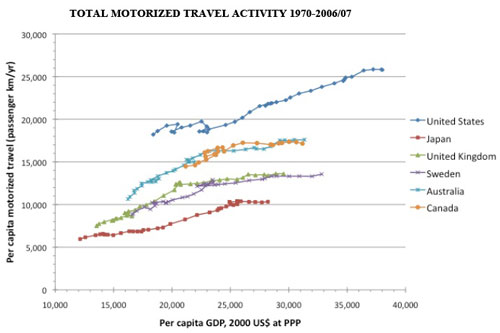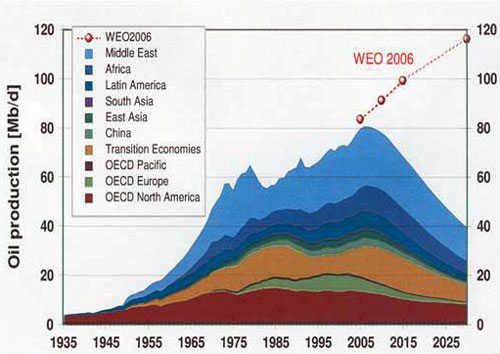Mobility is a key aspect of urban development. It is generally assumed that the demand for mobility will continue to grow in the future, propelled by increasing activity and wealth, and supported by ever expanding infrastructure networks. Recently, researchers Adam Millard-Ball and Lee Schipper of Stanford University raised another possibility: the demand for mobility may have reached its peak.
First traffic jam on a Dutch highway, on May 29, 1955 (a holiday)

Similar to the concept of Peak Oil, Peak Travel predicts a possible paradigm shift from growing consumption to stabilization and perhaps even decline in mobility demand. Peak Oil, on the one hand, counts with stagnating of oil production, somewhere between 2005 and 2015 (the exact peak year is disputed), due to limited new oil reserves and higher costs to bring the remaining oil to the surface. This is expected to increase prices and therefore decrease demand, because people will seek affordable alternatives. Peak Travel, on the other hand, shows that in western industrialized countries, travel distances have increased with growing incomes. However, this growth of mobility has recently come to a halt, while wealth still continues to grow.
Peak Travel

Many possible explanations can be given. The personal travel time budget (known to be around 1,5 hours per day on average), for instance, has remained constant, even though people have the financial means to spend more time traveling. Traffic jams are a factor that limit distances one can travel in a certain amount of time, and also the velocity of various travel modes is reaching an optimum. Furthermore, vehicle ownership is more or less saturated, everyone who would like to drive, drives. And the aging population counts with more and more people who don’t commute to work anymore. It could very well be, the researchers state, that this recent flat line is simply some sort of hick-up, and mobility will soon start to increase again. However, it could also happen to be a peak in our travel behavior, which will continue on this level for some time, and perhaps even start to decline in the future. Peak travel could be a major change in cities, regions and the way we plan and build them.
Peak Oil
